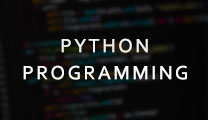
Best Certification for Web Application Security 2025
Bytecode Security has been offering professional Cyber Security Courses in the field of Information and technology for a long time. Moreover, if you are worried about getting a job after completion of your course, then you can go for Bytecode Security, cuz they are offering the Best Certification for Web Application Security Course in Delhi for the brightest future of Web Application Security Aspirants.
Best Web Application Security Course In Delhi
A well-known course, “Web Application Security Course” has been introduced to the aspirants of Websites and Security. In this course, they’ll be able to learn about how web applications work and how professionals handle security-related issues gets created via unauthorized access.
Daily, huge numbers of data breaches come in front of the website’s users. However, professionals are there to lessen the stress of users so they can peacefully use the web applications to their heart’s content.
Web Application Security Course Content
Module 01: Introduction
Module 02: Owasp Top 10
Module 03: Recon for bug hunting With AI
Module 04: Advanced SQL Injection
Module 05: Command injection With AI
Module 06: Session Management and Broken Authentication Vulnerability
Module 07: Cross-Site Request Forgery (CSRF)
Module 08: Server Site Request Forgery (SSRF)
Module 09: Cross-Site Scripting (XSS) With AI
Module 10: Insecure Direct Object Reference (IDOR)
Module 11: Sensitive Data Exposure and Information Disclose With AI
Module 12: Server Site Template Injection (SSTI) With AI
Module 13: Multi-Factor Authentication Bypass
Module 14: HTTP Request Smuggling
Module 15: External Control of File Name or Path
Module 16: Local File Inclusion (LFI) and Remote File Inclusion (RFI)
Module 17: Directory Path Traversal
Module 18: HTML Injection
Module 19: Host Header Injection
Module 20: File Upload Vulnerability With AI
Module 21: JWT Token Attack
Module 22: Flood Attack on the Web With AI
Module 23: API Testing With AI
Module 24: Report Writing With AI
Learn Web Application Security Course Online
Oh! Are you living outside Delhi, but really want to learn Web Application Security Skills for a long time? Don’t worry! Get in contact with Bytecode Security and get the opportunity to Learn Web Application Security Course Online under the guidance of working professionals in IT Sectors with the skills of Web Application Security.
This online course will help you to get the best outcome results while something new in your career life. Achieve your goals with the best qualified trainers under the premises of Bytecode Security while getting the best learning environment. Why are you waiting so long? Contact, Now!
Course Duration: 40 Hours
Course Level: Intermediate
Include: Training Certificate
Key Specializations to the Web Application Security Course
Basics of Web Applications
BURPSUIT / Proxy Interception
How to inject SQL injection
Vulnerabilities in Web Applications and how to remove them
How to manage Data Breach
Buffer overflow
Cross-Site Request Forgery
How to apply design and coding
Best Institute for Web Application Training
To start your career in Web Application Security, you can start by learning concepts of Web Application Security, or you can join a course that offers knowledge related to Web Application Security. But where can you get this course?
If you want to get the Best Web Application Security Course in Delhi then you can get in contact with Bytecode Security that is offering this course in Delhi for the aspirants of web application for a long time in the market.
This course is specially customized for the IT Security Students who sees a career growth in Web Application Security and want to achieve big goals in the field of IT Industry. But what makes it more interesting is that it will be delivered by the professional trainers of Bytecode Security who has been working in the field of IT for a long time and have achieved in their career paths. So, you don’t need to be afraid of or asking how to achieve your goals too.
What is Web Application Security?
Identified
Preventing
Responding to Threats
Coding Practices
Testing for Vulnerabilities
Deploying Security Controls
Monitoring for Suspicious Activity
These steps can prevent unauthorized access from adversaries who just want to get the access to the victimized devices, after which they enter the databases and try to steal data from it. For destroying the protective layers around the web application, they try to penetrate the system and exploit the vulnerabilities.
These vulnerabilities become the reason for the trespass of unauthorized users into the system. However, you can ask a professional to stop them from accessing the systems. For that, professionals use several Web Application Security Techniques and Tools.
Such resources can help in reducing the chances of data breaches. But where to go to learn such skills? Moreover, what do I need to start my career in Web Application Security?
Web Application Security Course Online
By understanding the time concerns of various Web Penetration Course aspirants, the genuine institutions of Bytecode Security do provide an authentic Web Application Security Course Online through VILT (Virtual Instructor-Led Training) sessions. The students can avail of this facility by enrolling in this magnificent Web Application Security Course Online at any point of time and space of their choice.
Moreover, Bytecode Security is the worldwide trusted Information Security training partner for various enthusiasts willing to switch their careers to the Web Application Security Course in Delhi and other varied Cyber Security domains.
Web Application Security Course Review




Frequently Asked Questions
About the Best Web Application Security Course and Certification 2025
You can learn Web Application Security from a variety of sources:
- Online Courses,
- Cybersecurity Bootcamps,
- Books and E-books,
- Conferences and Workshops,
- Official Documentation and Guides, etc.
And
There are several institutes offering Web Application Security coaching. But if you want the best trainers to guide you through all your hardships and challenges you can get in contact with Bytecode Security.
Why only Bytecode Security? That’s because Bytecode Security has been offering the Best Web Application Security Course and Certification in Delhi for the students of Information and Tech, also who want to start their career in web application development & security. Contact, Now!
Yes, pursuing a profession in Web Security is a highly commendable decision. Due to the rising number of web applications and the escalating risk of cyber assaults, there is a great demand for experts specialized in web security. This profession offers attractive prospects for income growth, several avenues for professional advancement, and cross-industry operation.
A Web Application Security Engineer is responsible for:
- Assessing Web Applications,
- Implementing Security Measures,
- Conducting Security Audits and Penetration Testing,
- Developing Security Policies,
Responding to Security Incidents, and many more.
Web applications are commonly created by utilizing a blend of programming languages:
- Frontend,
- Backend,
- Databases, etc.
Ensuring the security of a web application requires the implementation of various strategies:
- Use HTTPS,
- Input Validation,
- Authentication and Authorization,
- Regularly Update and Patch,
- Use Security Headers,
- Conduct Security Audits and Penetration Testing, etc.
Web Security requirements include:
- Data Encryption,
- Secure Authentication,
- Access Control,
- Protection Against Common Vulnerabilities,
- Regular Security Audits, etc.
Websites can get hacked due to various reasons, including:
- Outdated Software,
- Weak Passwords,
- Misconfigured Servers,
- Vulnerable Web Applications,
- Phishing and Social Engineering Attacks, etc.
If you want to start Learning Web Application Security, then some of the topics that you can work on are
- Web security principles.
- Attacks & countermeasures.
- Web application vulnerabilities.
- Browser security model.
- Injection, DoS, and TLS attacks.
- Fingerprinting, privacy, same-origin policy, authentication, cross-site scripting, JavaScript security.
- Defense-in-depth.
- Emerging threats.
Where can you learn about these concepts? For that, you need to find a course and certification that can offer you knowledge of the above concepts. The best option that you can choose is to join the Best Web Application Security Course and Certification offered by Bytecode Security. This course is specially designed to offer you the fundamental knowledge of web security.
Yes, a novice can indeed acquire knowledge in the field of cybersecurity. Adopting a method that begins with foundational concepts like networking and basic security principles, and then progresses to more complex subjects, is a commendable strategy. A plethora of materials, such as online courses, books, and community forums, are readily accessible to assist novices.
Web security encompasses the strategies and procedures put in place to safeguard websites and web applications against cyber hazards. An instance of employing HTTPS to safeguard the transmission of data between a user’s browser and the web server is considered a fundamental online security measure. Another instance involves utilizing a Web Application Firewall (WAF) to safeguard against SQL injection attacks
The layers of web application security include:
- Network Security,
- Application Security,
- Endpoint Security,
- Data Security,
- Identity and Access Management, etc.
Web security is achieved by the implementation of a variety of procedures and technologies that are specifically designed to safeguard web servers, web applications, and online services from unlawful access and malicious assaults. This encompasses encryption protocols such as HTTPS to ensure secure transmission of data, firewalls to obstruct malicious traffic, security audits and penetration testing to detect and rectify vulnerabilities, secure coding practices to prevent exploits, and consistent monitoring and updating of systems to safeguard against emerging threats.
Training Available 24*7 Call at +91 9513805401
Course Overview
Course Name : Web Application Security
Course Level : Intermediate
Language : Hindi English
Course Delivery : Online / Classroom Training
Include : Training and Certificate
Course pdf : Click here to Download
1 Year Diploma Course
Related Cyber Security Courses
Information Security and Cyber Security Training and Certification Training Course provided by Bytecode Cyber Security in Delhi.
Free Demo Class
Web Application Security Course Review





Frequently Asked Questions
There are several institutes offering Web Application Security coaching. But if you want the best trainers to guide you through all your hardships and challenges you can get in contact with Bytecode Security.
Why only Bytecode Security? That’s because Bytecode Security has been offering the Best Web Application Security Course and Certification in Delhi for the students of Information and Tech, also who want to start their career in web application development & security. Contact, Now!
Yes, web security can be a great career choice. It is an important field, and it is growing in demand as more companies rely on digital solutions. Web security specialists help protect companies from cyberattacks, secure their data, and ensure that their websites and applications are secure.
As technology advances, there will be an increasing need for professionals in this field. Such professionals are known as Web Applications Security Professionals. If you become one, you will definitely be getting a huge amount of job placement opportunities. So, try if you want!
- Designing security protocols.
- Installation security protocols
- Monitoring security protocols,
- Installation web app firewalls
- Analyzation of web app codes
- responsive to security events.
- PCI
- DSS
- HIPAA
Web Apps can be programmed in various programming languages. Some of them are as follows
- JavaScript
- HTML
- CSS
- Python
- Java
- C#
- PHP
- and Ruby.
To secure your web applications from unauthorized access, you can use the following techniques and tools
1. Web Application Firewall (WAF): A firewall is one of a kind of Network Security System that
- Observe Malicious Traffic
- Filter Malicious Traffic
- Blocks Malicious Traffic
2. Deploy Authentication and Authorization: Authentication is the step supported in identifying and validating the users’ ID or App. There, Authorization offers you the control to allow or deny access to certain resources/ assets that depend on users’ ID.
3. Encrypt data: Data Encryption supports protecting data from unauthorized access who can get access to information via malicious apps.
4. Use Secure Sockets Layer (SSL)/ Transport Layer Security (TLS): To ensure the protection of communications between a web browser and server, you can have the support of SSL/ TLS.
5. Regularly patch and update software: As you know that every day we hear about malware attacks, so you should ensure that your web application should be patched once in a while. Moreover, updation can help web apps from unknown loopholes.
6. Monitor system logs: You must re-check system loggings before shutting down your systems, that is, to detect any suspicious activity/ unauthorized access threats.
If you want your web application to be secured from online threats, you need to ensure that you must have had to take care of the following checks.
- Use a Secure Connection.
- Authentication and Authorization.
- Input Validation.
- Cross-Site Scripting Protection.
- SQL Injection Protection.
- Use of Secure Session Cookies.
- Use of Encryption.
- Regular Security Audits.
There are a variety of ways with the help of which websites can get hacked by unauthorized access. Some of the ways can be – SQL Injection, Remote File Inclusion, Cross-Site Scripting, Brute Force Attacks, and exploiting software loopholes.
Social Engineering Techniques can be used to get confidential data from the databases. Moreover, there’s a lot more things that you need to learn and know about website hacking and prevention!
If you want to start Learning Web Application Security, then some of the topics that you can work on are
- Web security principles.
- Attacks & countermeasures.
- Web application vulnerabilities.
- Browser security model.
- Injection, DoS, and TLS attacks.
- Fingerprinting, privacy, same-origin policy, authentication, cross-site scripting, JavaScript security.
- Defense-in-depth.
- Emerging threats.
Where can you learn about these concepts? For that, you need to find a course and certification that can offer you knowledge of the above concepts. The best option that you can choose is to join the Best Web Application Security Course and Certification offered by Bytecode Security. This course is specially designed to offer you the fundamental knowledge of web security.
Yes, you can learn cyber security, even if you are a beginner. There are several institutes offering cybersecurity courses. However, there’s no guarantee that you’ll get the job or not. But, if you get in contact with Bytecode Security, you’ll get the Best 1 Year Diploma Course in Cyber Security Training in Delhi.
This course offers knowledge related to the fundamental concepts of cybersecurity techniques and tools. Moreover, you’ll get a government-approved certificate that is valid in several MNCs, which is a good thing. That certificate can assure your placements in MNCs. What are you waiting for? Contact, Now!











